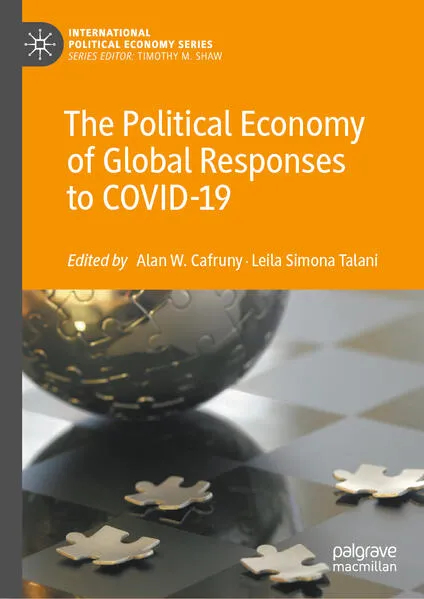
- Publikationen ca: 2
- Fragen & Antworten
Alan W Cafruny
Alan Cafruny (Ph.D.) Cornell (1983) is Henry Platt Bristol Professor of International Affairs at Hamilton College. He is the author of numerous books including Ruling the Waves: The Political Economy of International Shipping (Univ. of California Press 1987; 2020); Europe at Bay (Lynne Rienner, 2008, with Magnus Ryner) The European Union and Global Capitalism: Origins, Development, Crisis (Palgrave MacMillan, with Magnus Ryner, 2017). Most recently he has co-edited The Handbook of Critical International Political Economy (Palgrave MacMillan, Leila Talani and Gonzalo Pozo , 2017). He is a former series editor (with Herman Schwartz) of the series: Advances in International Political Economy, sponsored by the International Political Economy Section of the International Studies Association.
The Political Economy of Global Responses to COVID-19
This book seeks to identify the reasons why some countries were more efficient and effective than others in responding to the COVID 19 pandemic, and why the global community failed to coalesce. What are the political determinants of the different state responses to the pandemic? Why was scientific advice rejected or ignored in many countries? What has been the role, respectively, of neoliberalism, populism, and authoritarianism in the making of Covid-19 policy? What role have each of these factors played in the uneven and clearly inadequate global response to the pandemic?In an effort to understand why some states failed to handle the pandemic properly, some of the literature suggests that populism is at the root of the current failure of international co-operation.
The Political Economy of Global Responses to COVID-19
This book seeks to identify the reasons why some countries were more efficient and effective than others in responding to the COVID 19 pandemic, and why the global community failed to coalesce. What are the political determinants of the different state responses to the pandemic? Why was scientific advice rejected or ignored in many countries? What has been the role, respectively, of neoliberalism, populism, and authoritarianism in the making of Covid-19 policy? What role have each of these factors played in the uneven and clearly inadequate global response to the pandemic?In an effort to understand why some states failed to handle the pandemic properly, some of the literature suggests that populism is at the root of the current failure of international co-operation.

